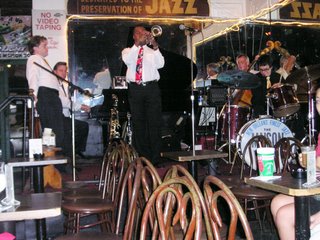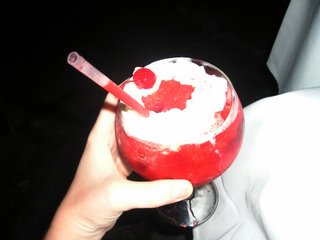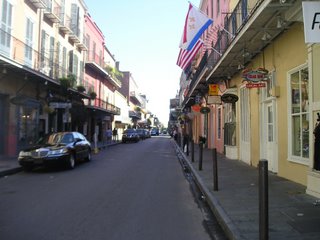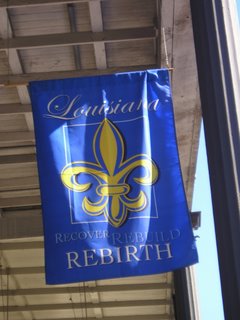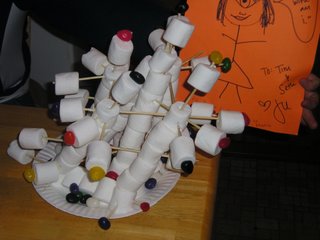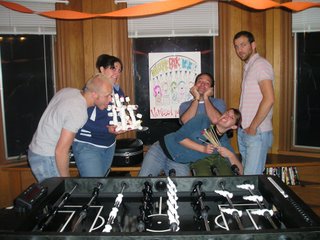A little bit later I broke out in hives all over my chest, neck, and parts of my face. Hives are very uncomfortable and, of course, itchy. I grabbed a few wash clothes to put on my neck and we headed to our family Christmas party. I didn't think much of my reaction because I have allergy attacks often...but this one was different.
A while later I was at the party and I started to feel really light headed, dizzy, and all swollen. I laid down and went into a kind of anaphylaxis shock. Luckily my aunt saw this and called my mom and dad over. I knew I was having an anaplylactic allergic reaction and that I should head to the hospital to get a shot of epinepherine (adrenaline), but I asked my dad to give me a blessing first.
My dad and two of his brothers gave me a blessing and I decided to just lie down and see if I could wait it out. Thank goodness for the power of the Priesthood and worthy men who hold it. Thanks daddy! I made it through the rest of the night.
Having that attack was a reminder to me of the importance of being grateful for health. I thought I was free and clear of having an anaphylactic attack since I hadn't had one in years...but alas it isn't so. I am also grateful for modern medicine (thanks Kathy for the Zyrtec, an antihistamine).
Below is a little bit about Anaphylaxis for those who care to know more about it:
What is Anaphylaxis?
Anaphylazis is the word used for serious and rapid allergic reactions usually involving more than one part of the body which, if severe enough, can kill.
The word anaphylaxis was coined when scientists tried to protect dogs against a poison by immunising them with small doses. Far from being protected, the dogs died suddenly when they got the poison again. The word used for protection by immunisation is 'prophylaxis', so the scientists coined the word 'anaphylaxis' to mean the opposite of protection. What the scientists saw in the dogs helped them to understand that the same can happen in humans. This helped us to understand asthma and other allergies too, because they work in a similar way.
Scientists now use the word 'anaphylaxis' to mean any immune reaction of this type, even if it is not serious. But most doctors use it to mean a life-threatening rapid allergic reaction.
Unfortunately this kind of 'harmful immunisation' happens to a few of us not just from injections but from ordinary foods such as nuts. Quite literally, "one man's meat is another man's poison". Our immune system, which is there to protect us from infection, goes wrong and harms or even kills us.
When does anaphylaxis happen?Anaphylaxis happens when the body makes the wrong kinds of antibody, a kind called immunoglobulin E (IgE for short) to protein in our food or to something like a drug. IgE sticks to cells in our bodies (mast cells and basophils) which can release substances which have powerful effects on our blood vessels and air passages. When the same protein or drug reaches the IgE on the cells, these substances are released, causing blood vessels to relax, which makes them leaky and can cause swellings and a fall in blood pressure. At the same time they can make the breathing passages become narrow.
Histamine is one of these substances released from the cells. Antihistamines are medicines which stop histamine from working. So you might think that they would be good for nut allergy, and so they can be when the reaction is mild. But as tablets they take about an hour to get into the bloodstream properly, and this is far too slow to save lives in serious reactions.
So basically what happens in people with allergies is not what people think. Most people think that, for instance, if you are allergic to cats you get sick because of the cat's dander. This is sort of true and sort of false. Almost all people are allergic to cat dander but people with allergies over produce histamine. So you might play with a cat and produce 100 histamine to block the dander allergens from the cat's fur. If I played with that same cat I would produce 1000 or more histamines. My body basically attacks itself. In the case of anaphylaxis the auto immune deficiency can cause serious side effects or even death.How can you tell if someone is having anaphylaxis?
Anaphylaxis usually happens quickly.
Anaphylaxis can produce:
- An itchy nettlerash (urticaria, hives)
- Faintness and unconsciousness due to very low blood pressure. Unlike an ordinary fainting attack, this does not improve so dramatically on lying down.
- Swelling (angioedema)
- Swelling in the throat, causing difficulty in swallowing or breathing
- Asthma symptoms
- Vomiting
- Cramping tummy pains
- Diarrhoea
- A tingling feeling in the lips or mouth if the cause was a food such as nuts
- Death due to obstruction to breathing or extreme low blood pressure (anaphylactic shock)
In the early stages it may be difficult, even for a doctor, to be sure whether the cause of symptoms is anaphylaxis or fainting or a panic attack. If there is doubt, it is sometimes best to use the treatment for anaphylaxis, but the treatment should then be reviewed with a doctor because unnecessary treatment for anaphylaxis is a bad idea. Learn the rules for knowing when to treat, to minimise the chance that you will use the treatment when you should not.
What is the best treatment for anaphylaxis?Although there are several important treatments, by far the most important is:
There is one drug which will work against all the effects of all the dangerous substances released in anaphylaxis. It is adrenaline (epinephrine). For serious attacks, it is a vital treatment. You need to inject it; inhalers may no longer be an option.
I used to carry around an Epi Pen in case I went into anaphylactic reaction. I stopped carrying around with me years ago for a few reasons. One reason is I stopped having serious allergic reactions so I didn't see the need for it. The other is that whenever I would tell people about my epi pen and how they would have to inject it into my hip if I ever went into anaphylactic shock and couldn't inject myself--they would look at me as if I was crazy--then they would say no way.
I am grateful for modern medicine, for epinephrine, for the power of the Priesthood, and especially for good health. Here's to many more years before that ever happens again!












